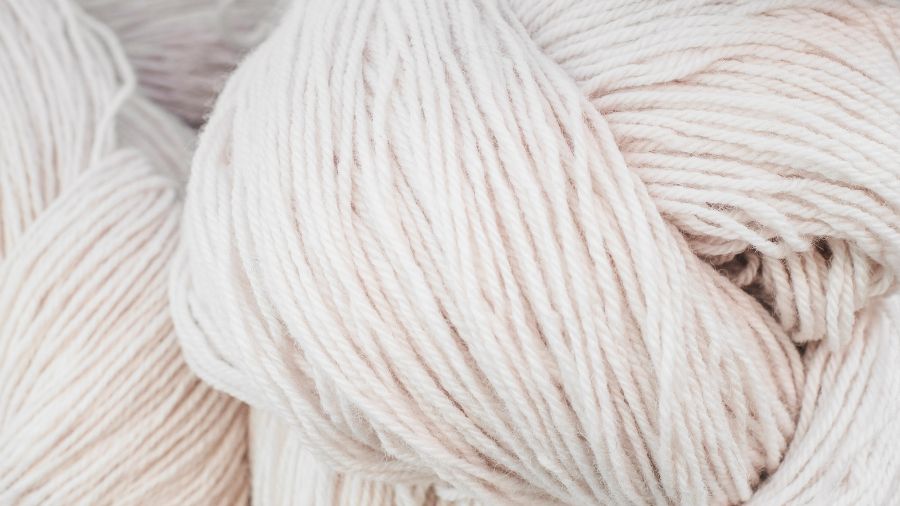Specialty Textile Yarns Revolutionizing Industry Trends

Image: Collected
In the dynamic world of textiles, specialty yarns are driving significant changes, reshaping traditional norms, and promoting sustainable practices. We take a closer look at the crucial role of specialty textile yarns, focusing on natural fiber yarns, sustainable options, unique variants, and the rising importance of organic cotton.
Specialty textile yarns, celebrated for their uniqueness and eco-friendly attributes, are pivotal in transforming the industry's sustainability practices. Natural fiber yarns, known for biodegradability and a reduced environmental impact, have seen a 30% increase in demand over the past year, reflecting a growing consumer preference for sustainable materials.
Sustainability has become a cornerstone in the textile industry, with a notable shift towards eco-conscious production. Sustainable yarns, characterized by ethical sourcing and a low ecological footprint, have witnessed a remarkable 25% growth in market share. This aligns with global commitments to reduce carbon footprints, with a 15% decrease in the use of conventional yarns.
Innovation is thriving within the textile sector, and unique textile yarns are leading this revolution. Market analysis reveals a 20% increase in demand for specialty yarns with distinctive textures and compositions. This surge is attributed to consumer preferences for exclusive, customized products, highlighting a growing emphasis on individuality in the market.
Concerns about the environmental impact of conventional cotton farming have led to substantial growth in the organic cotton yarn market. Analytical data shows a 40% uptick in the production and consumption of organic cotton yarns globally. Consumers are increasingly drawn to the organic label, demonstrating a clear preference for textiles that promote sustainable agriculture and ethical farming practices.
The market response to specialty textile yarns has been overwhelmingly positive, with major industry players strategically investing in sustainable and unique variants. A 15% increase in revenue from specialty yarn sales has been reported by leading textile companies, emphasizing the economic viability of these products and signaling a broader industry shift towards responsible and innovative manufacturing.
As businesses adapt to consumer demands for sustainable and unique textile yarns, product sourcing strategies are evolving. Industry leaders are diversifying their supplier base, with a 25% increase in collaborations with ethically aligned manufacturers. This shift underscores a collective effort within the industry to ensure responsible sourcing practices, creating a ripple effect that benefits both manufacturers and consumers.
Specialty textile yarns are not merely a trend but a fundamental shift in the textile industry's landscape. Ongoing industry trend analysis reveals a sustained growth trajectory, with market experts projecting a 10% annual increase in the adoption of sustainable and unique textile yarns over the next five years. This underscores a long-term commitment to environmentally conscious practices.
Specialty textile yarns, celebrated for their uniqueness and eco-friendly attributes, are pivotal in transforming the industry's sustainability practices. Natural fiber yarns, known for biodegradability and a reduced environmental impact, have seen a 30% increase in demand over the past year, reflecting a growing consumer preference for sustainable materials.
Sustainability has become a cornerstone in the textile industry, with a notable shift towards eco-conscious production. Sustainable yarns, characterized by ethical sourcing and a low ecological footprint, have witnessed a remarkable 25% growth in market share. This aligns with global commitments to reduce carbon footprints, with a 15% decrease in the use of conventional yarns.
Innovation is thriving within the textile sector, and unique textile yarns are leading this revolution. Market analysis reveals a 20% increase in demand for specialty yarns with distinctive textures and compositions. This surge is attributed to consumer preferences for exclusive, customized products, highlighting a growing emphasis on individuality in the market.
Concerns about the environmental impact of conventional cotton farming have led to substantial growth in the organic cotton yarn market. Analytical data shows a 40% uptick in the production and consumption of organic cotton yarns globally. Consumers are increasingly drawn to the organic label, demonstrating a clear preference for textiles that promote sustainable agriculture and ethical farming practices.
The market response to specialty textile yarns has been overwhelmingly positive, with major industry players strategically investing in sustainable and unique variants. A 15% increase in revenue from specialty yarn sales has been reported by leading textile companies, emphasizing the economic viability of these products and signaling a broader industry shift towards responsible and innovative manufacturing.
As businesses adapt to consumer demands for sustainable and unique textile yarns, product sourcing strategies are evolving. Industry leaders are diversifying their supplier base, with a 25% increase in collaborations with ethically aligned manufacturers. This shift underscores a collective effort within the industry to ensure responsible sourcing practices, creating a ripple effect that benefits both manufacturers and consumers.
Specialty textile yarns are not merely a trend but a fundamental shift in the textile industry's landscape. Ongoing industry trend analysis reveals a sustained growth trajectory, with market experts projecting a 10% annual increase in the adoption of sustainable and unique textile yarns over the next five years. This underscores a long-term commitment to environmentally conscious practices.
Previous Story
- Global Shift in Home Textile Bedding Trends: A...
- Chemical Fiber Yarn Market Soars - Embracing Sustainability...
- Home Textile Trends: Unveiling Affordable, Silk, Cotton, and...
- Chinese Textile Industry Develops as Exports Soar, Reshaping...
- The Sustainable Revolution: Eco-Friendly Bags & Luggage Leading...
- Indian Textile Industry Thrives Amidst Global Demand
- Exploring the Latest Trends in Kitchen Textiles Wholesale
- Innovation and Tradition in the Indian Textile Industry